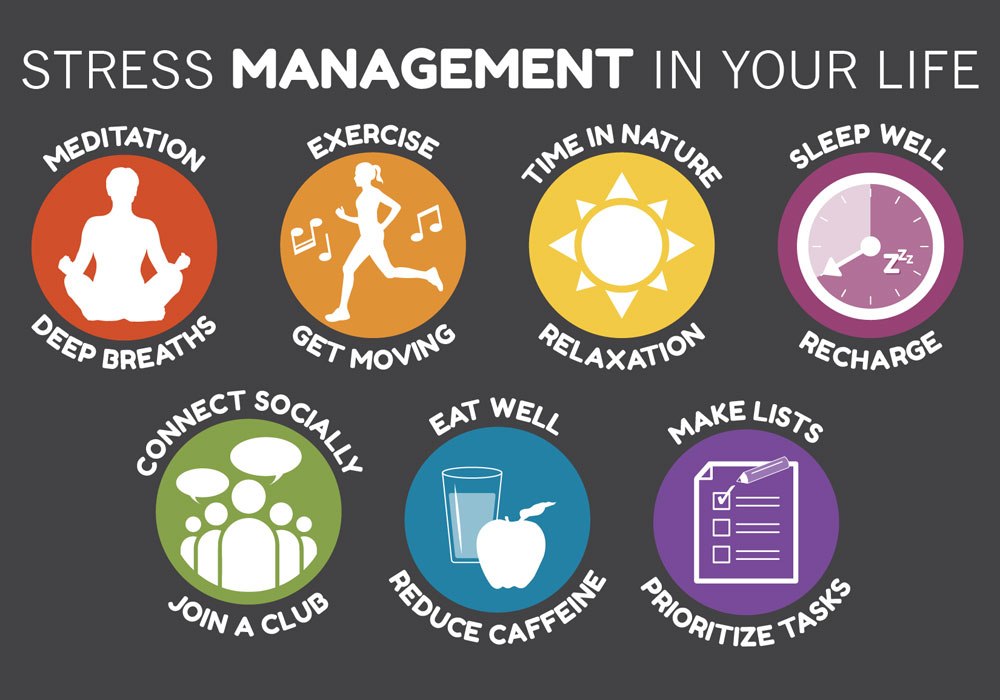Stress Management: 10 Magic Strategies to Cope and Find Balance
Table of Contents
In today’s fast-paced world, stress has become an inevitable part of daily life. The pressures we face can sometimes feel overwhelming, from work deadlines to personal responsibilities. However, managing stress effectively is essential for maintaining mental and physical well-being.
Incorporating various coping techniques into your routine can reduce stress and help you find a greater sense of balance and calmness. Here are some strategies for stress management:
Check out:
- Types of Diet in the Hospital and 3 Non-therapeutic Diets
- Anti-ageing Supplements &Check out The 7 Vital Anti-ageing Supplements Now
- Postpartum Hair Loss &Meaning, Causes, Visible Signs And Safety Measures
- Identify Stress Triggers: The first step in stress management is recognising what triggers it. Take note of situations, events, or people that consistently cause stress. Once you’re aware of these triggers, you can begin to develop strategies for coping with them more effectively.
- Practice Mindfulness and Meditation: In stress management, Mindfulness and meditation techniques can help calm the mind and reduce stress. Take a few minutes daily to sit quietly, focus on your breath, and let go of racing thoughts. Incorporating mindfulness into your daily routine can help you stay present and centred, even in challenging situations.
- Exercise Regularly: Talking about stress management, Physical activity is a powerful stress reliever. Whether going for a walk, practising yoga, or hitting the gym, exercise can help release tension and boost your mood by increasing the production of endorphins, the body’s natural feel-good chemicals.
- Maintain a Healthy Lifestyle: Eating a balanced diet, getting enough sleep, and avoiding excessive caffeine and alcohol can all contribute to better stress management. Fueling your body with nutritious foods and prioritising restorative sleep can help you cope with daily stressors better.
- Set Boundaries: Learning to say no and setting boundaries with others is crucial for managing stress. Recognising your limits and prioritising self-care by not overcommitting to tasks or obligations that may cause unnecessary anxiety is a powerful way of stress management.
Also see:

- Dental Care &10 Ways To Keep Your Teeth Healthy
- Healthy Habits &7 Healthy Habits For Teens To Follow
- Health Tips &14 Health Tips For A Healthy Lifestyle
- Practice Time Management: Feeling overwhelmed by a never-ending to-do list can significantly contribute to stress. Break tasks into smaller, manageable steps and prioritise them based on importance and urgency. Tools like calendars or planners can help you stay organised and reduce overwhelming feelings.
- Seek Support: Don’t hesitate to contact friends, family, or a mental health professional for support when needed. Talking about your feelings with someone you trust can provide perspective and help alleviate stress.
- Engage in Relaxation Techniques: Incorporate relaxation techniques such as deep breathing exercises, progressive muscle relaxation, or aromatherapy into your daily routine. These techniques can help activate the body’s relaxation response and reduce stress.
- Find Healthy Outlets for Stress: Engage in activities that bring you joy and relaxation, whether you are spending time outdoors, pursuing a hobby, or practising creative expression. Having healthy outlets for stress can provide a much-needed break from daily pressures.
- Practice Self-Compassion: Be kind to yourself during times of stress. Acknowledge that it’s okay to feel overwhelmed and treat yourself with the same compassion and understanding you would offer to a friend facing similar challenges.
Summary:
Remember that managing stress is an ongoing process, and what works for one person may not work for another. Experimenting with different techniques and strategies is essential to find what works best. By incorporating these coping techniques into your daily life, you can build resilience and cultivate a greater sense of well-being, even in the face of life’s inevitable stressors.
